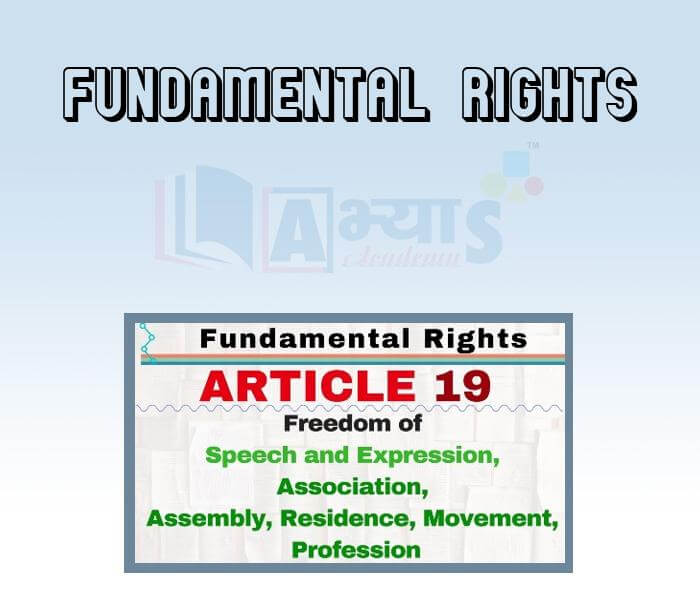Fundamental Rights for India Citizen









Fundamental Rights for India Citizen
Fundamental Rights: The fundamental rights are basic rights guaranteed by the constitution for the citizens of India. They are legally sanctioned and they can be enforced in a court of law. They include political, social, cultural and economic rights.
· Right to equality: All citizens are entitled to equal treatment before law. All enjoy equal rights and opportunities.
· Right to freedom: It includes freedom of speech and expression, freedom to assemble peacefully without arms, freedom to form associations. Freedom to move freely throughout the country.
· Right to freedom of religion: India is a secular country; every citizen has the freedom to profess, practice and propagate the religion of his or her liking.
· Right to cultural and educational rights: People belonging to all cultural groups have the right to practice their language and culture.
· Right against exploitation: Poverty or ignorance exposes a person to all kinds of humiliation and exploitation. Often it drives adult and children to work for long hours, for a pittance, and that too under unhealthy conditions. The right against exploitation protects people from being exploited.
· Right to education: The right of children to free and compulsory Education (RTE) was introduced by the government. By this act, all the children between the age of 6 and 14 have the right to free and compulsory elementary education in a neighborhood school.
Students / Parents Reviews [10]
About Abhyas metholodology the teachers are very nice and hardworking toward students.The Centre Head Mrs Anu Sethi is also a brilliant teacher.Abhyas has taught me how to overcome problems and has always taken my doubts and suppoeted me.

Shreya Shrivastava
8thA marvelous experience with Abhyas. I am glad to share that my ward has achieved more than enough at the Ambala ABHYAS centre. Years have passed on and more and more he has gained. May the centre flourish and develop day by day by the grace of God.

Archit Segal
7thIt was good as the experience because as we had come here we had been improved in a such envirnment created here.Extra is taught which is beneficial for future.

Eshan Arora
8thAbhyas is a complete education Institute. Here extreme care is taken by teacher with the help of regular exam. Extra classes also conducted by the institute, if the student is weak.

Om Umang
10thAbhyas Methodology is very good. It is based on according to student and each child manages accordingly to its properly. Methodology has improved the abilities of students to shine them in future.

Manish Kumar
10thMy experience with Abhyas academy is very good. I did not think that my every subject coming here will be so strong. The main thing is that the online tests had made me learn here more things.

Hiya Gupta
8thIt was a good experience with Abhyas Academy. I even faced problems in starting but slowly and steadily overcomed. Especially reasoning classes helped me a lot.

Cheshta
10thBeing a parent, I saw my daughter improvement in her studies by seeing a good result in all day to day compititive exam TMO, NSO, IEO etc and as well as studies. I have got a fruitful result from my daughter.

Prisha Gupta
8thMy experience was very good with Abhyas academy. I am studying here from 6th class and I am satisfied by its results in my life. I improved a lot here ahead of school syllabus.

Ayan Ghosh
8thIt has a great methodology. Students here can get analysis to their test quickly.We can learn easily through PPTs and the testing methods are good. We know that where we have to practice
